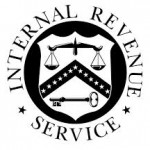IRS Already Received Over Half of Expected Tax Returns

The Internal Revenue Service said Thursday it has already received more than half of the tax returns it expects to receive during 2014, even though the filing deadline is nearly a month away.
The IRS said it has received more than 75 million individual tax returns as of March 14 and projects that it will receive about 149 million individual income tax returns by the end of the year.
The agency also offered some advice for the millions of individual tax filers who have business income either as sole proprietors or as subcontractors. Many individual filers also have unreimbursed business expenses, the IRS noted.
The IRS recently issued Publication 535, Business Expenses, which provides valuable information for these filers. The publication contains useful hints for tax year 2013, for which many taxpayers are still completing returns and for tax year 2014, for which taxpayers are tracking expenses and making financial decisions.
For tax year 2013, there is an optional safe harbor method to determine the business use of a home deduction, also known as the simplified option for claiming the home office deduction. Beginning in 2013, taxpayers can use the optional safe harbor method to determine the deduction for the business use of a home.
Beginning in 2013, the standard mileage rate for the cost of operating a car, van, pickup, or panel truck for each mile of business use is 56.5 cents per mile, the IRS noted. For tax year 2014, the standard mileage rate for the cost of operating a car, van, pickup, or panel truck for each mile of business use is 56 cents per mile.
For 2013, a 0.9 percent Additional Medicare Tax applies to Medicare wages, railroad retirement (RRTA) compensation, and self-employment income that are more than $125,000 if married filing separately, $250,000 if married filing jointly, or $200,000 if single, head of household, or qualifying widow(er) with dependent child.
Medicare wages and self-employment income are combined to determine if a taxpayer’s income exceeds the threshold. RRTA compensation should be separately compared to the threshold. For more information, visit www.irs.gov and enter the following words in the search box: Additional Medicare Tax.
(By MICHAEL COHN)
Source: accountingtoday





























